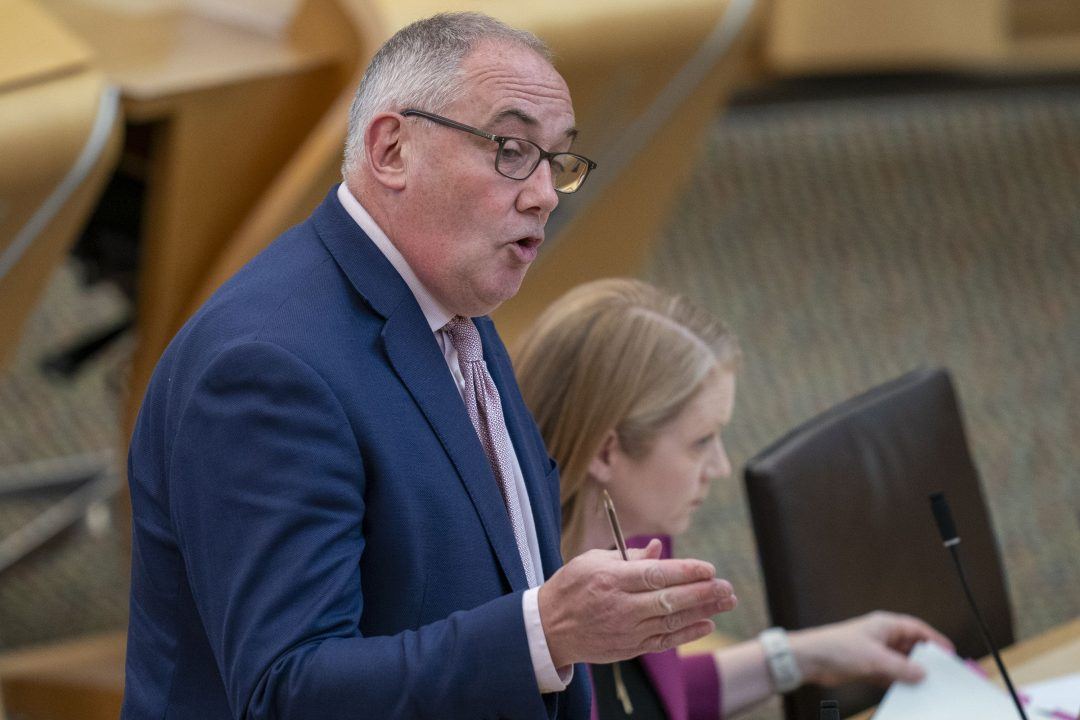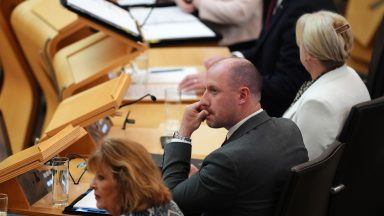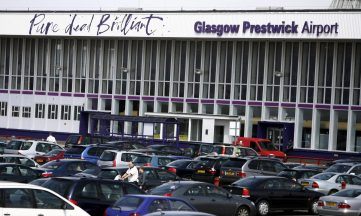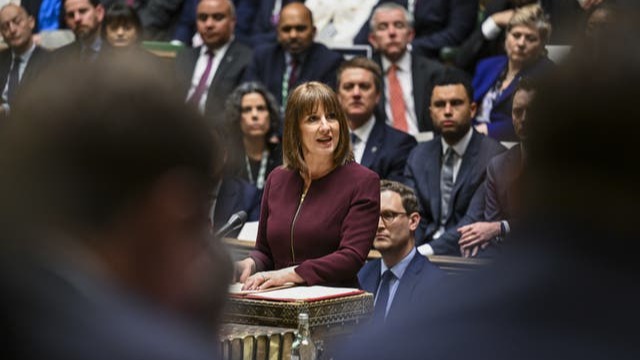More details on exemptions from the Scottish Government’s rent control plans will be published “at the earliest opportunity”, the housing minister has said.
Holyrood on Thursday debated the general principles of the Housing (Scotland) Bill – legislation which allows ministers to create rent control zones following a recommendation from local councils.
Within these areas, prices in the private rented sector will not be allowed to rise higher than 1% above the rate of inflation as measured by the Consumer Prices Index (CPI), up to a maximum of 6%.
However MSPs on a cross-party committee had earlier said there is a lack of clarity on how it will work in practice, which may harm investment in the sector.
Earlier this week, statistics showed the price of a private two-bed rental property in and around Scotland’s capital has more than doubled since 2010.
Housing minister Paul McLennan told MSPs: “The scale of private rent rises in Scotland demonstrates the need for action to tackle rising rent levels.”
He said the principle of rent controls has broad support, with a YouGov poll finding 82% are in favour.
The minister said the Government will consult on which type of buildings will be exempt from the rent control proposals.
He said: “We are taking steps to bring this consultation forward early, whilst the Bill is still being progressed, to make sure that those regulations can be laid at the earliest opportunity if the Bill is passed.
“Our wider reforms in the Bill for the rented sector brings forward a range of changes that will help improve both how the rented sector operates and the rented sector for tenants.”
Conservative Meghan Gallacher said she agrees with parts of the Bill to tackle homelessness, saying the levels of homelessness among children in Scotland should “shame each and every one of us”.
However she said the Bill will not tackle the housing emergency and a previous round of rent controls introduced during the pandemic had been a “disaster”.
She said: “To tackle the housing emergency we need to build more homes.
“We can’t afford £3.2 billion of investment to disappear out of thin air because of permanent rent controls being brought in by the SNP. That is not good policy.”
Scottish Labour housing spokesman Mark Griffin said with 13 councils and the Scottish Parliament declaring a housing emergency, the Bill “does not need to be ambitious, it needs to be revolutionary”.
The lack of supply of housing, he added, has driven people into the private rented sector when they would usually have lived in social or mid-market rented homes.
“I really fear that this Bill only attempts to manage the symptoms of that chronic lack of supply,” he said.
The UK Government, Mr Griffin added, had brought about a “step change” in housing since taking office in July by pledging to build 1.5 million homes in this parliamentary term.
Scottish Green MSP Maggie Chapman expressed her “profound disappointment” at the Scottish Government’s rent control proposals.
Ms Chapman said: “Limiting councils to capping rent increases at inflation plus 1% is not transformation, it is capitulation to landlord interests that will perpetuate the very inequalities this Bill was meant to address.”
Scottish Liberal Democrat MSP Willie Rennie also pointed to the lack of supply, saying: “I hope this Bill marks a turning in the approach of the Government.”
Ruth Gilbert, the national campaigns chair for Living Rent, said tenants will welcome the vote on Thursday, adding: “Rent controls, if done right, will transform Scotland.
“From child poverty to homelessness, bringing down Scotland’s exorbitant rents is an essential step in addressing the housing crisis.
“What’s concerning from today is that too many MSPs are repeating landlords’ myths instead of advocating for tenants.
“Landlords are doing everything they can to sabotage and water down the Bill.
“MSPs need to support tenants and introduce rent controls tied to the property and not the tenancy or else landlords will continue to be incentivised to evict tenants in order to increase rents.
“We’ve seen the inflationary pressure caused by massive between-tenancy rent hikes, so it’s simple economic sense.”
Follow STV News on WhatsApp
Scan the QR code on your mobile device for all the latest news from around the country


 PA Media
PA Media























